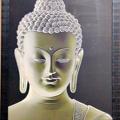Question 2 :
Simplest form of $\displaystyle \dfrac{1}{\sqrt{2 + \sqrt{2 + \sqrt{2 + 2 cos 4x}}}}$ is
Question 3 :
IF A+B+C=$ \displaystyle 180^{\circ}  $ ,then $  tan A+tanB+tanC $ is equal to
Question 6 :
The solution of $(2 cosx-1)(3+2 cosx)=0$ in the interval $0 \leq \theta \leq 2\pi$ is-
Question 7 :
If $sec\theta -tan\theta =\dfrac{a}{b},$ then the value of $tan\theta $ is
Question 9 :
Given $\cos \theta = \dfrac{\sqrt3}{2}$, which of the following are the possible values of  $\sin 2 \theta$?
Question 11 :
Is LHS=RHS?$\displaystyle\frac{\tan^2\theta}{1+\tan^2\theta}+\displaystyle\frac{\cot^3\theta}{1+\cot^2\theta} = \sec\theta sin\theta - 2 cosec\theta\cos\theta$Say true or false.
Question 12 :
The value of $\cos 1^{\circ}. \cos 2^{\circ}. \cos 3^{\circ} ...\cos 179^{\circ}$ is equal to:
Question 13 :
If $\alpha \in Q_3$ and $\tan\alpha =2$ then $\sin \alpha =$________.
Question 16 :
The value of the expression $[\text{cosec(}75^{\small\circ}+\theta) - \sec(15^{\small\circ}- \theta) - \tan(55^{\small\circ} + \theta) + \cot(35^{\small\circ} - \theta)]$ is
Question 17 :
The maximum value of $ \cos \alpha_1 \cdot \cos \alpha_2 \cdot \cos \alpha_3 ... \cos \alpha_n $ under the restriction $ 0 \le \alpha_1 , \alpha_2 , ... , \alpha_n \le \pi / 2 $ and $ \cot \alpha_1 = \cot \alpha_2 = .... \cot \alpha_n = 1 $ is :
Question 20 :
Find the value of $\dfrac {\cos 75^{\circ} . \sin 12^{\circ}. \cos 18^{\circ}}{\sin 15^{\circ}. \cos 78^{\circ} . \sin 72^{\circ}}$
Question 21 :
For all real values of $\theta$ , $\cot\theta-2 \cot 2\theta$ is equal to
Question 23 :
Find the relation obtained by eliminating$\displaystyle \theta $ from the equation$\displaystyle x=a\cos \theta +b\sin \theta $ and$\displaystyle y=a\sin \theta -b\cos \theta $
Question 24 :
In a $\Delta ABC$, if $\cos A \cos B \cos C=\displaystyle\dfrac {\sqrt 3-1}{8}$ and $\sin A. \sin B. \sin C=\displaystyle \dfrac {3+\sqrt 3}{8}$, then- On the basis of above information, answer the following questions:The angles of $\Delta ABC$ are:<br/>
Question 25 :
If $\text{cosec } \theta = \dfrac {13}{5}$, then $\cos \theta = ......$





























